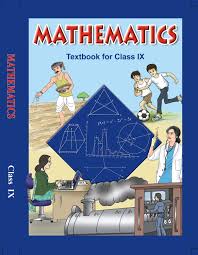Class 9 - Mathematics
Number System - Exercise 1.3

Top Block 1
Exercise 1.3
Question : 1:Write the following in decimal form and say what kind of decimal expansion each has:
(i) 36/100 (ii) 1/11 (iii) 4 (iv) 3/13 (v) 2/11 (vi) 329/400
Answer :
(i) 36/100 = 0.36
So, the decimal expansion of 36/100 is terminating.
(ii) 1/11 = 0.090909….. = 0.09
Thus, the decimal expansion of 1/11 is non-terminating repeating.
(iii) 4 = 4 + 1/8 = 33/8 = 4.125
Thus, the decimal expansion of 4 is terminating.
(iv) 3/13 = 0.230769230769…. = 0.230769
Thus, the decimal expansion of 3/13 is non-terminating repeating.
(v) 2/11 = 0.181818………. = 0.18
Thus, the decimal expansion of 2/11 is non-terminating repeating.
(vi) 329/400 = 0.8225
Thus, the decimal expansion of is terminating.
Question : 2:You know that 1/7 = 0.142857 can you predict what the decimal expansion of 1/7, 3/7, 4/7, 5/7, 6/7. Are, without actually doing the long division? if so how?
Answer :
Given, 1/7 = 0.142857
Now,
2/7 = 2 * (1/7) = 2 * 0.142857 = 0.285714
3/7 = 3 * (1/7) = 3 * 0.142857 = 0.428571
4/7 = 4 * (1/7) = 4 * 0.142857 = 0.571428
5/7 = 5 * (1/7) = 5 * 0.142857 = 0.714285
6/7 = 6 * (1/7) = 6 * 0.142857 = 0.857142
Thus, without actually doing the long division we can predict the decimal expansions of the
above given rational numbers.
Question : 3:Express the following in the form p/q where p and q are integers and q ≠ 0.
(i) 0.6 (ii) 0.47 (iii) 0.001
Answer :
(i) Let x = 0.6
⇒ x = 0.66666……. ……….1
Multiply equation 1 by 10 on both sides, we get
10x = 6.6666….
⇒ 10x = 6 + 0.6666……
⇒ 10x = 6 + x [From equation 1]
⇒ 10x – x = 6
⇒ 9x = 6
⇒ x = 6/9
⇒ x = 2/3
(pi) Let x = 0.47
⇒ x = 0.477777……. ……….1
Multiply equation 1 by 10 on both sides, we get
10x = 4.7777…. …….2
Multiply equation 2 by 10 on both sides, we get
⇒ 100x = 47 + 0.7777……
⇒ 100x = 43 + 4 + 0.7777……
⇒ 100x = 43 + 4.7777……
⇒ 100x = 43 + 10x [From equation 2]
⇒ 100x – 10x = 43
⇒ 90x = 43
⇒ x = 43/90
(iii) Let x = 0.001
⇒ x = 0.001001001……. ……….1
Multiply equation 1 by 1000 on both sides, we get
1000x = 1 + 0. 001001
⇒ 1000x = 1 + x [From equation 1]
⇒ 1000x – x = 1
⇒ 999x = 1
⇒ x = 1/999
Question : 4:Express 0.99999 . . . in the form p/q. Are you surprised by your answer? With your teacher and classmates discuss why the answer makes sense.
Answer :
Let x = 0. 99999……. ……….1
Multiply equation 1 by 10 on both sides, we get
10x = 9. 99999….
⇒ 10x = 9 + 0. 99999…..
⇒ 10x = 9 + x [From equation 1]
⇒ 10x – x = 9
⇒ 9x = 9
⇒ x = 9/9
⇒ x = 1
The answer makes sense as 0.99999…. is very close to 1. That’s why we can say that
- 99999… = 1
Question : 5:What can the maximum number of digits be in the repeating block of digits in the decimal expansion of 1/17? Perform the division to check your answer.
Answer :
Since, the number of entries in the repeating block of digits is less than the divisor. In 1/17 the
divisor is 17.
So, the maximum number of digits in the repeating block is 16.
To perform the long division, we have
1/17 = 0.588235294117647
Thus, there are 16 digits in the repeating block in the decimal expansion of 1/17.
Hence, our answer is verified.
Question : 6:Look at several examples of rational numbers in the form p/q (q ≠ 0) where p and q are integers with no common factors other than 1 and
having terminating decimal representations (expansions). Can you guess what property q must satisfy?
Answer :
Let some examples are:
2/5 = 0.4, 1/10 = 0.1, 3/2 = 1.5, 7/8 = 0.875
The denominator of all the rational numbers are in the form 2m * 5n where m and n are
integers.
Mddle block 1
Question : 7:Write three numbers whose decimal expansions are non-terminating non-recurring.
Answer :
Three numbers whose decimal expansions are non-terminating non-recurring are:
√2 = 1.414213562……….
√3 = 1.732050808……….
√5 = 2.236067978……….
Question : 8:Find three different irrational numbers between the rational numbers 5/7 and 9/11.
Answer :
5/7 = 0.714285714285……… = 0.714285
9/11 = 0.818181…………….. = 0.81
We know that there are infinite many irrational numbers between two rational numbers.
So, the three irrational numbers are:
- 0.72722722272222…….., 2. 0. 73733733373333…….., 3. 0. 74744744474444……..
Question : 9:Classify the following numbers as rational or irrational:
(i) √23 (ii) √225 (iii) 0.3796 (iv) 7.478478….. (v) 1.101001000100001…
Answer :
(i) Since 23 is not a perfect square.
So, √23 is an irrational number.
(ii) 225 = 15 * 15 = 152
So, 225 is a perfect square.
Thus, √225 is a rational number.
(iii) Since 0.3796 is a terminating decimal,
So, it is a rational number.
(iv) 7.478478 = 7.478
Since 7.478 is a non-terminating and recurring (repeating) decimal.
So, it is a rational number.
(v) Since 1.101001000100001… is a non-terminating and non-repeating decimal number.
So, it is an irrational number.
